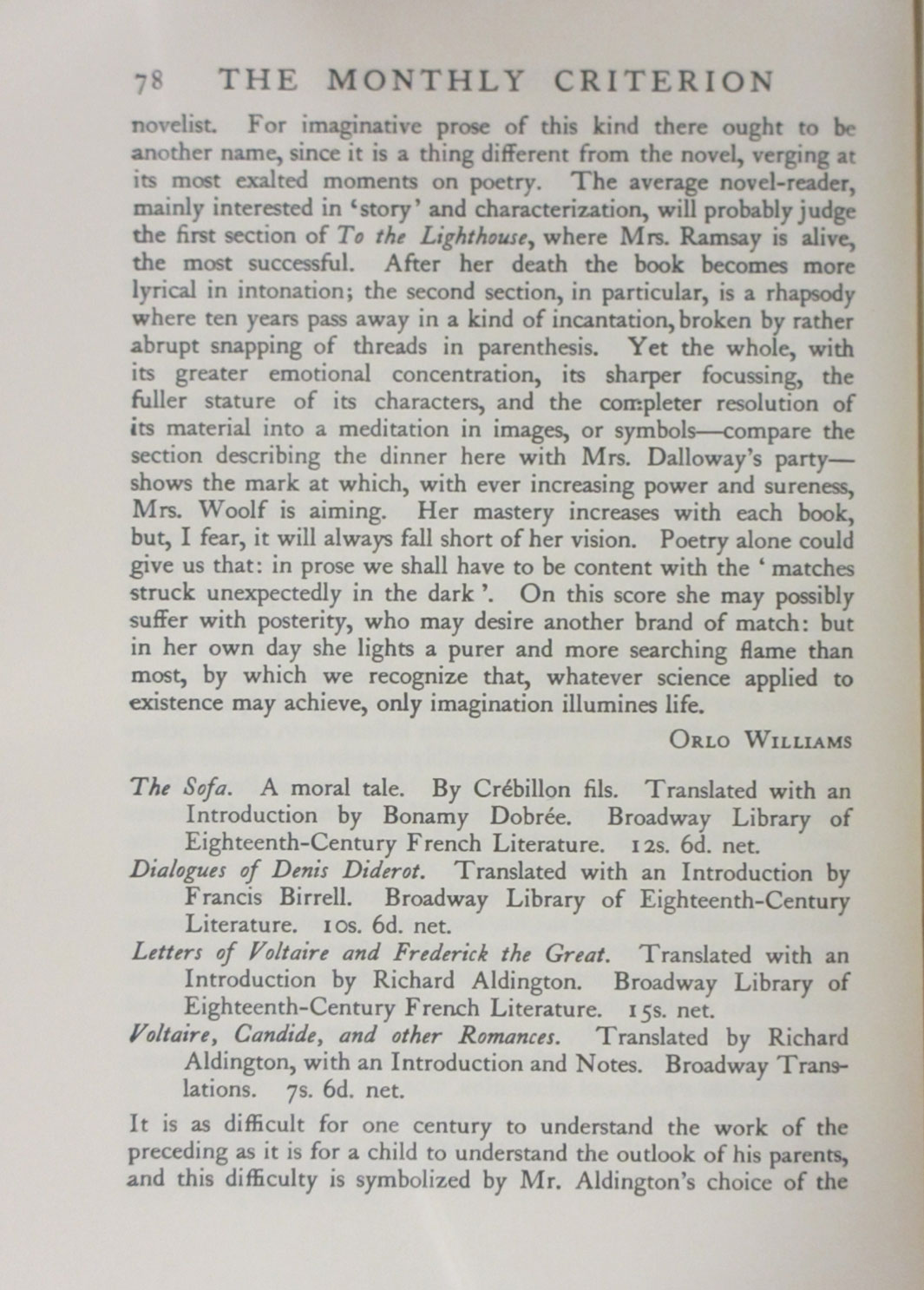
novelist. For imaginative prose of this kind there ought to be
another name, since it is a thing different from the novel, verging at
its most exalted moments on poetry. The average novel-reader,
mainly interested in ŌĆśstoryŌĆÖ and characterization, will probably judge
the first section of To the Lighthouse, where Mrs. Ramsay is alive,
the most successful. After her death the book becomes more
lyrical in intonation; the second section, in particular, is a rhapsody
where ten years pass away in a kind of incantation, broken by rather
abrupt snapping of threads in parenthesis. Yet the whole, with
its greater emotional concentration, its sharper focussing, the
fuller stature of its characters, and the completer resolution of
its material into a meditation in images, or symbolsŌĆöcompare the
section describing the dinner here with Mrs. DallowayŌĆÖs partyŌĆö
shows the mark at which, with ever increasing power and sureness,
Mrs. Woolf is aiming. Her mastery increases with each book,
but, I fear, it will always fall short of her vision. Poetry alone could
give us that: in prose we shall have to be content with the ŌĆśmatches
struck unexpectedly in the darkŌĆÖ. On this score she may possibly
suffer with posterity, who may desire another brand of match: but
in her own day she lights a purer and more searching flame than
most, by which we recognize that, whatever science applied to
existence may achieve, only imagination illumines life.
ORLO WILLIAMS






